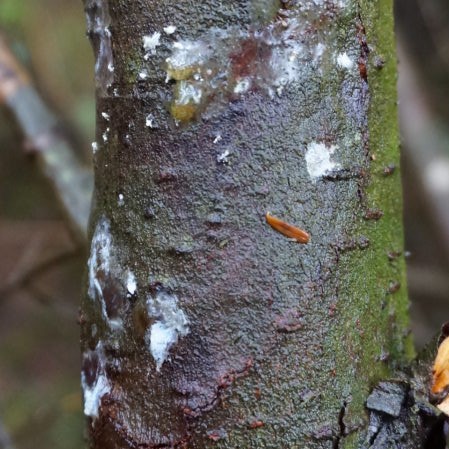The Forestry Commission (FC) has introduced new measures to take combat the spread of the tree pathogen Phytophthora pluvialis.
The UK chief plant health officer has confirmed further findings of the disease in woodlands in the affected areas: Devon, Cornwall and Cumbria. As a result, extended demarcated areas have been introduced.
Although Phytophthora pluvialis has been detected on mature western hemlock and Douglas-fir trees at these sites, it is as yet unknown if the pathogen is the direct cause of the observed symptoms. Investigations are ongoing to determine whether other factors are at play.
These extension notices, which help to prevent accidental movement of the pathogen, come into force on Thursday, January 27.
The notices prohibit the movement of any wood, isolated bark and trees (including live trees, felled or fallen trees, fruit, seeds, leaves or foliage) of the genus Tsuga, Pseudotsuga, Pinus and Notholithocarpus, that has originated within the demarcated area.
Provision is made within the notices to enable plant health inspectors to authorise movements and processing of material from the demarcated area where this can be achieved without risking the spread of Phytophthora pluvialis.
The notices also now include an additional restriction on the felling of susceptible material within the demarcated areas, unless the FC has been notified in writing in advance.
Landowners must provide notice of their intention to fell relevant material at least 14 days in advance of any felling in the demarcated areas. Felling may only commence once written authorisation is provided the Forestry Commission
Woodland managers, landowners, tree nurseries and the forestry industry are also being urged by government to remain vigilant for signs of the disease.
It is reported to cause needle cast (where needles turn brown and fall off), shoot dieback, and lesions on the stem, branches, and roots.

